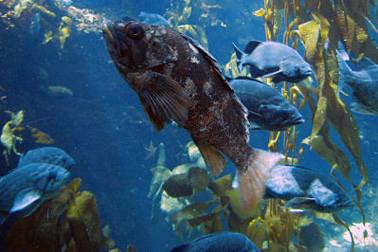
Responding in part to the strength of a wildly popular Care2 petition, the US government’s National Oceanic and Atmospheric Association implemented restrictions to commercial and recreational fishing throughout the US,
setting fishing limits for every species of fish it oversees. The NOAA re
gulates the fishing of 528 types of fish and with this kind of oversight, it is going to move American fishing into new frontiers of sustainability.
Caps on fishing different species are vitally important to maintaining fish stocks, explaining the wide base of support for this policy. Everyone from environmentalists and conservationists to people who just like to eat fish can get behind this — it promotes biodiversity while making sure that people will be able to enjoy fish for years to come. In the wake of news that the Northeastern cod population has collapsed by two thirds in the past three years and that all worldwide fisheries are expected to deplete by 2048, we needed drastic action.
This is, indeed, a major shift in policy, making the US the first country in the world to impose such comprehensive limits. It is also a rare, heartening example of bipartisanship, as the policy changes were initially proposed by George W. Bush and supported by members of both sides of the aisle. And perhaps most importantly, it shows the power of social media: even though powerful, monied interests stood to gain from loose regulation, concerned citizens — through mediums like Care2 petitions — let their voices be heard.
Though this is a huge success for sustainable fishing advocates, there’s still much work to be done to ensure fishing is done sustainably. Domestically, it is unlikely that government agents can police the seas alone, so they will rely on local activists to do their part to stop illegal overfishing. Internationally, no other country has regulations as comprehensive as those in the US, so hopefully others’ fishery managers will start to follow the lead of the NOAA. At the very least, now that these regulations are in place we can refocus on other pressing problems with the international fishing industry.
Courtesy of: http://www.care2.com

